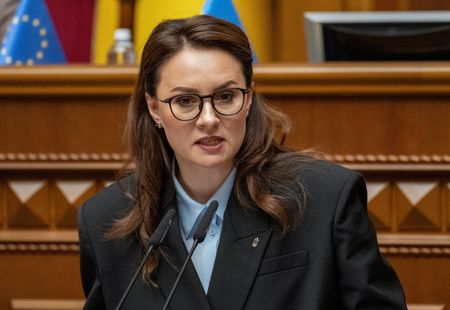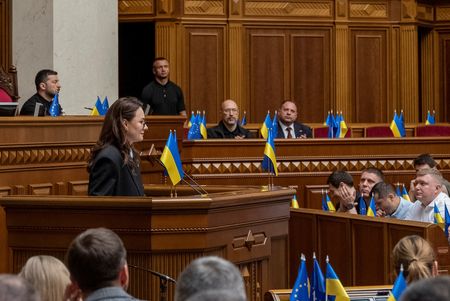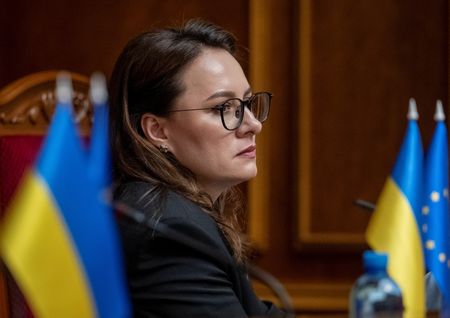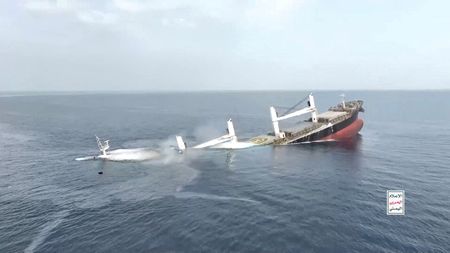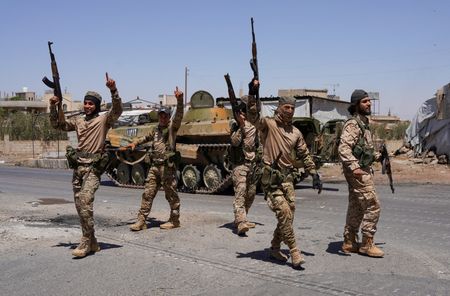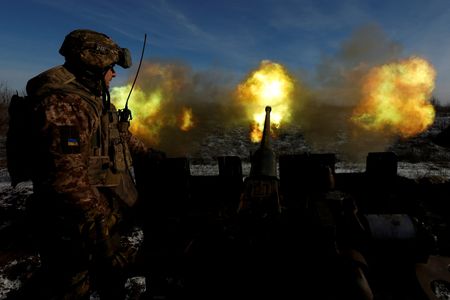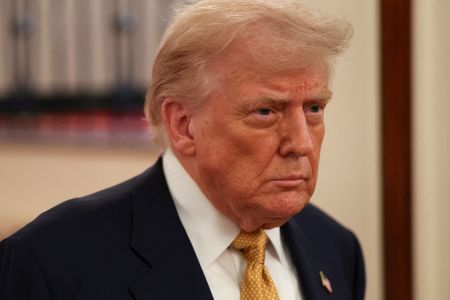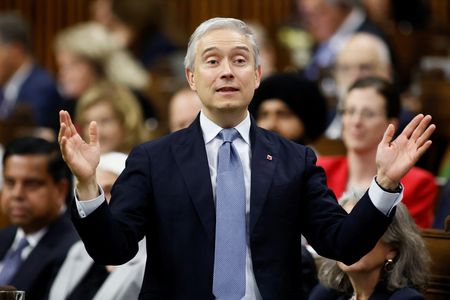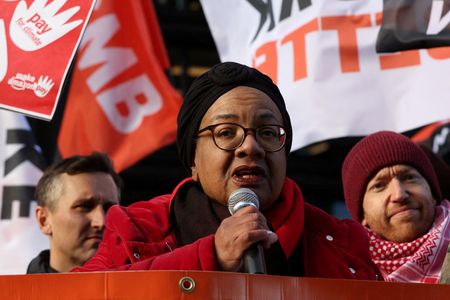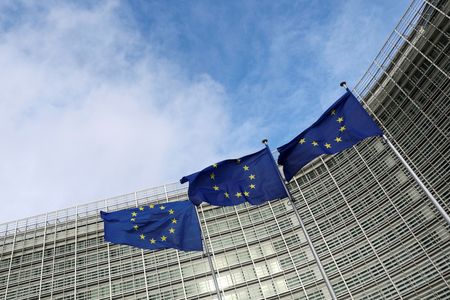KYIV (Reuters) -Parliament approved Yulia Svyrydenko as Ukraine’s new prime minister on Thursday and backed her plan to cut the number of ministries, merging some of the main portfolios, to save funds in wartime.
With the new government, President Volodymyr Zelenskiy is trying to wrestle wartime defence spending into shape and win over both U.S. President Donald Trump and a war-weary public with fresh-faced leadership.
Here are some key members of the new government, in which Andrii Sybiha remains foreign minister and Serhii Marchenko stays on as finance minister.
PRIME MINISTER YULIA SVYRYDENKO
Svyrydenko, 39, an economist by education, has worked in the government since 2019, rising through the ranks after being a deputy minister to become economy minister and first deputy prime minister. She is tasked with unlocking Ukraine’s economic potential during the war raging since Russia’s full-scale invasion in February 2022 and increasing domestic weapon production as much as possible.
Svyrydenko played an important role in recent negotiations on an agreement with the United States giving the U.S. preferential access to new Ukrainian minerals deals and funding investment in Ukraine’s reconstruction.
MYKHAILO FEDOROV, FIRST DEPUTY PRIME MINISTER, IN CHARGE OF DIGITAL TRANSFORMATION
Fedorov, 34, was first appointed a deputy prime minister in 2019. In 2023, his remit grew to include innovation, science and technology, in addition to digital affairs.
He played a prominent role in driving development of military technology through a government-backed platform to nurture private-sector innovation.
DENYS SHMYHAL, DEFENCE MINISTER
Shmyhal, 49, became Ukraine’s longest-serving prime minister after being appointed to the role in 2020 and held the role throughout the war until this week’s government overhaul.
Parliament has passed a decision to merge the defence ministry and the ministry for strategic industries. Shmyhal will oversee the defence sector, domestic weapon production and international cooperation in weapons and defence.
Shmyhal will also be in charge of the bulk of state spending. Ukraine spends about 36% of gross domestic product on its defence efforts.
President Volodymyr Zelenskiy has said the defence minister will have more resources at his disposal than other ministers but also greater responsibility.
TARAS KACHKA, DEPUTY PM FOR EU INTEGRATION
Kachka, 45, has previously served as Ukraine’s trade representative and deputy economy minister, with responsibility for state foreign economic policy and export strategy.
He was also involved in negotiations with the U.S. on the minerals deal and with European Union officials on agricultural trade.
OLEKSII SOBOLEV, MINISTER FOR ECONOMY, ENVIRONMENT AND AGRICULTURE
Sobolev, 42, will head the new giant ministry for economy, environment and agriculture. Ukraine previously had three separate ministries to cover these portfolios.
Prior to this appointment, he served as first deputy economy minister responsible for state investment policy, managing state property policy and economic development.
Ukraine is a top global producer and exporter of grains and other agricultural products. Agribusiness is a driving force for the war-ravaged economy and the new minister will look at prospects for opening new markets and try to unlock other economic opportunities to help Ukraine’s recovery.
SVITLANA HRYNCHUK, ENERGY MINISTER
Hrynchuk, 39, was appointed ecology minister in a government reshuffle in September 2024. Prior to that, she was a deputy energy minister for a year. She also had various other government positions focusing on the energy sector and climate change issues.
(Reporting by Reuters, Editing by Timothy Heritage)

